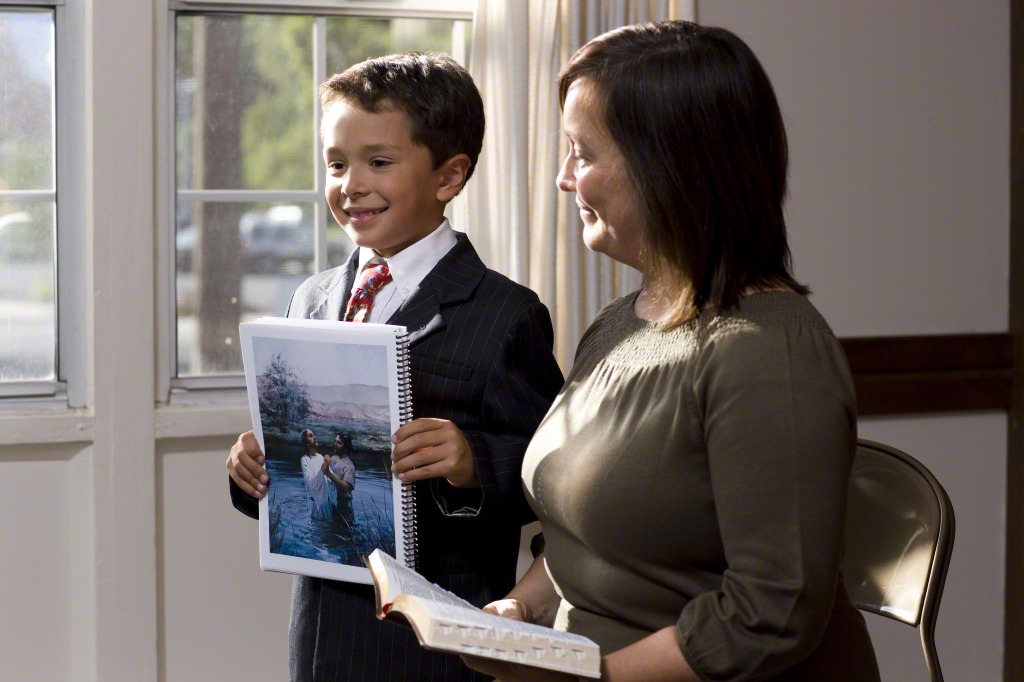Eleven-year-old Rebecca stared out the bus window but didn’t really see the houses passing by. The after-school bus commotion raged around her but didn’t interrupt her troubled thoughts. If I don’t get an A on the final history report, I won’t get an A in history. That means no honor roll. It’s not fair. I’ve worked hard all year long to get on the honor roll, and now, all because of this stupid assignment, I might not make it this last quarter. History, yuck! The bus lurched to a stop but couldn’t jolt Rebecca’s thoughts from her history assignment. I have only a week to write about someone who made a contribution to the United States’ growth and progress. It would be simple if Mrs. Langley would just let us write about someone famous, but no, it has to be about some unfamous dead person. Dead person—of course! The Woman of the Dead! Rebecca smiled as she worked out a plan. In a few minutes she was hurrying up the front walk of a small brick house. “The Woman of the Dead,” she chuckled as she rang the door bell. That’s what the kids called her aunt because it seemed like all she ever talked about was “the dead.” Aunt Hattie spent all her time doing family history for herself and for others. Aunt Hattie’s wrinkled face lit up with a big smile when she saw Rebecca at the door. “Come in, come in,” she urged. As always, stray curls were poking up here and there. A pencil nestled above one ear. Bifocals were perched on her long straight nose. Her eyes danced as she led Rebecca into the living room. “Sit down and tell me what brings you here.” “Aunt Hattie, I got an awesome history assignment today that I thought you might be able to help me with.” As she explained her assignment, Aunt Hattie listened, smiled, and nodded. “Sounds like quite a task. Do you have any ideas whom you would like to write about?” “None. I sort of hoped that you could help me find someone.” “How about someone in our own family?” “We don’t have anyone in our family that did anything great or important—do we?” Rebecca asked sheepishly, realizing that she knew very little about her own family’s history. “Well, let’s see what we can find.” Aunt Hattie chuckled again as she moved quickly to her computer. “Now, the first thing we need to do is pull up your pedigree chart.” “Pedigree chart?” asked Rebecca, sitting next to Aunt Hattie and looking at the computer screen. “A pedigree chart is a chart of your family tree. But it starts with you, instead of your ancestors, and goes backward with names, dates of births, marriages, and deaths. See, here’s your mother’s chart.” Aunt Hattie pointed to the screen. Rebecca saw “Mary Helen Farmer Hughes” on the screen with other names and dates. “Do you have everyone’s pedigree chart right here in your house?” Aunt Hattie laughed. “Almost everyone who’s ever taken my family history class—which is about everyone in town!—has been good enough to share what he’s found with me. Now let’s see whom we have that might be of interest for your report. How far back do you want to go?” “Way back, I guess. Was there anyone in our family here before the Revolutionary War?” “Your earliest ancestor that we have record of came to America about 1750 from Germany—” “Germany! I didn’t know that!” Rebecca peered closer at the screen. “This is like a time machine!” she exclaimed as Aunt Hattie scrolled down the computer screen. “Wait, I think I passed a good one for you,” Aunt Hattie said, scrolling back up the screen and pointing to a name. “Gideon Burdick was General George Washington’s drummer boy in the Revolutionary War.” “My great-great-whatever-grandfather, knew George Washington?” “Yes, but there’s more to Gideon Burdick’s story. And his daughter, Rebecca Burdick Winters, has an interesting story of her own. In fact, I believe that you were named after your great-great-great-great-great-great-grandmother Rebecca Burdick Winters.” “Tell me about her.” “Well now, I’d hate to give you any wrong information, especially since this is a school assignment. But if you’re free Saturday morning, maybe we can take a trip to the Family History Library right here in Salt Lake City to do some research,” Aunt Hattie suggested. “Wow, I can’t believe it—I actually have some neat ancestors!” On Saturday morning Rebecca and Aunt Hattie went to the Family History Library across the street from Temple Square. “Where do we start?” Rebecca asked, feeling a bit overwhelmed with all the rows of equipment and books in the first room they entered. “Each person whom the library has information about is listed by name in the Library Catalog here,” Aunt Hattie said, walking to a microfiche file. “You look in it for the person’s last name.” “I want to start with Gideon Burdick,” Rebecca told her. “Here he is. ‘Gideon Burdick, born 6 November 1762, Died 5 April 1846,’ ” she read. “Look! It says that there’s a book called The Descendants of Robert Burdick of Rhode Island. Gideon must be in this book, right?” Aunt Hattie smiled and nodded. “And since Rebecca Burdick Winters is Gideon’s daughter, she should be in the book too.” It only took a few minutes to find the book. It felt strange but wonderful to be holding part of her very own family’s history in her hands. She quickly found a place to sit down and work. “I’ll let you see what you can find,” said Aunt Hattie. “I have some work to do too. I’ll be back in a bit.” Rebecca opened the book, and on page 133 she found the name of Gideon Burdick and began to read: “Gideon Burdick possessed qualities which endeared him to his family and friends. It is told of him that one day he went into the fields to labor and hung his coat upon a fence post. By night he found a little bird had built its nest in the sleeve. Rather than disturb the nest he left the coat there until the young were hatched and able to leave.” Suddenly many-great-grandfather Gideon became a real person to Rebecca—someone she liked. But although the page on Gideon was interesting, it didn’t say anything about his being General Washington’s drummer boy. There has to be more, Rebecca thought, looking up from the book. She couldn’t see Aunt Hattie to ask for more help. I’ll just go on to Rebecca Burdick Winters till Aunt Hattie comes back. As she read, a quiet, peaceful, spiritual feeling filled her. Rebecca Burdick Winters and her husband, Hiram, had been the caretakers of the Kirtland Temple and the temple grounds. They had known the Prophet Joseph Smith well. Rebecca had taken care of the temple and its grounds while Hiram went on a mission to New York in 1835. She had five children at the time. The Winters family suffered persecution and great hardships because of their faithfulness to the Church. “Find anything interesting?” Aunt Hattie asked, sitting down across from Rebecca. “I can’t believe it. I had no idea that I was named for such a strong and courageous woman. I wish I could find out more about her.” “And Gideon? Did you find out all you need to know about him?” “No. The book didn’t say anything about his being a drummer boy. Where can I find out about that?” asked Rebecca. “Goodness! It sounds as if you are getting hooked on the dead,” chuckled Aunt Hattie. “It seems to me that there was a newspaper article on Rebecca. Let’s see what we can find under Salt Lake City in the Locality File.” She showed Rebecca the Locality File and explained how to use it. “I’ll leave you to your search now. Here are some quarters to photocopy anything you might want. I’ll be back in a while.” In the Locality File, Rebecca found that Rebecca Burdick Winters had an article written about her in the July 19, 1958, Deseret News. It was on a microfilm and was titled Lonely Grave of a Pioneer Mother. Reading it, she learned that in August 1852, Rebecca Winters and her family were traveling by wagon train to Salt Lake City. When deadly cholera invaded the wagon train outside Scotts Bluff, Nebraska, Rebecca helped care for the sick, and she watched her friends die until she herself was stricken with it and died. As the family prepared to bury Rebecca’s body, a band of starving Indians rode into the camp, demanding food. When told that there was no food to spare, they became desperate and threatened to kill the pioneers. Hiram Winters explained to the Indians that there was a terrible sickness among the wagon train. When the Indians failed to believe him, he removed the blanket from Rebecca’s body. The Indians quickly fled, leaving the pioneers to bury their dead in peace. Rebecca’s lonely grave was marked only by an old metal wagon tire inscribed Rebecca Burdick Winters, Age 50. Years later a survey party for a railroad discovered the wagon tire that marked the grave. The railroad track was to have gone over it, but the officials decided to reroute it around the grave of the brave pioneer mother. “Did you find enough material to write your report?” asked Aunt Hattie, sitting down as Rebecca finished the article. Rebecca swallowed the lump in her throat. “Yes, but not on Gideon. I’m going to make photocopies of all this information and write on Rebecca Burdick Winters. I think she contributed a lot to the United States’ growth and progress.” Rebecca was hard at work on her paper that night when Aunt Hattie rushed in. “I have some more information for you. I’ve been writing to a cousin in Ogden, Utah, to see if she had any family history to share—and by the way, now that you’re hooked yourself, on family history, the first thing you should do is write to your older relatives on both sides of your family for whatever help they can give you. Anyway, Cousin Myrna sent me a copy of a June 30, 1975, Ogden Standard Examiner article that tells about Gideon Burdick being the drummer boy, and even mentions his daughter Rebecca. Here.” As she took the papers that Aunt Hattie handed to her, Drummer of 1776 jumped out at her. Rebecca’s heart started to pound as she read that Gideon Burdick had indeed been the fourteen-year-old drummer boy who accompanied General George Washington on his historic trip across the Delaware River on Christmas Night, 1776: “The muffled sounds of Burdick’s drum encouraged the soldiers through the snow and sleet to the ice-bound Delaware River. “Washington and his men won the struggle with the icy currents of the Delaware, defeated the enemy and turned the tide of the American Revolution. The drummer boy’s drum was no longer muffled as he beat out a signal of victory. “Gideon Burdick’s memory has been immortalized with the issue of the new [1976] 25 cent piece by the U.S. Mint.” The article went on to tell about Gideon and his family. Then Rebecca found a paragraph about Rebecca Burdick Winters. It said that in 1902 her descendants, in loving memory, erected a monument made of Salt Lake granite beside Rebecca’s grave. In 1964 a national patriotic organization erected another monument by the grave, naming Rebecca Burdick Winters “The Pioneer Mother of America.” “Wow! Thanks, Aunt Hattie!” Rebecca could hardly wait to turn her paper in. Mrs. Langley was so pleased with Rebecca’s report that she read it to the class. “Pioneers such as Rebecca Burdick Winters,” she told them, “were among the courageous people who helped the country expand in the West.” Rebecca could hardly wait to show her A+ honor-roll paper to Aunt Hattie.
Talk Source:



